What If? - Hypothetical Scenario Explorer

Welcome! Ready to explore the unknown with 'What If?'
Imagine Possibilities, Explore Realities
What if humans could control the weather?
What if we discovered extraterrestrial life?
What if time travel were possible?
What if everyone had a personal AI assistant?
Get Embed Code
Introduction to What If?
What If? is a specialized GPT designed to explore hypothetical scenarios across a vast array of subjects. From scientific inquiries about alternate realities to historical events with a twist, What If? provides insights into the myriad possibilities beyond our known universe. Its purpose is not just to entertain but to enlighten by stretching the boundaries of our understanding through imaginative yet plausible scenarios. For example, What If? can analyze the potential consequences of historical events unfolding differently, such as 'What if the library of Alexandria had never been destroyed?' or delve into scientific curiosities like 'What if Earth had two moons?' These explorations encourage critical thinking and a deeper appreciation for the interconnectedness of events and ideas. Powered by ChatGPT-4o。

Main Functions of What If?
Exploring Alternate Histories
Example
What if the Roman Empire never fell?
Scenario
Analyzing the potential technological, cultural, and geopolitical landscape of a world where the Roman Empire sustained its power, impacting modern borders, languages, and legal systems.
Scientific Hypotheticals
Example
What if humans could photosynthesize?
Scenario
Examining the biological, societal, and environmental implications of humans having the ability to photosynthesize, including changes in food systems, urban planning, and human physiology.
Futuristic Speculations
Example
What if we could colonize Mars by 2050?
Scenario
Evaluating the challenges and achievements of establishing a human colony on Mars, considering technological advancements, life support systems, and the psychological aspects of long-term space habitation.
Cultural and Societal What-Ifs
Example
What if the internet was never invented?
Scenario
Contemplating the impact on global communication, information sharing, education, and economy in a world without the internet, offering insights into how different aspects of society would adapt and evolve.
Ideal Users of What If?
Educators and Students
What If? serves as a powerful tool for educators and students by fostering critical thinking and engagement with historical, scientific, and cultural content. It provides a unique way to explore 'what might have been' or 'what could be,' making learning more interactive and thought-provoking.
Writers and Creatives
Writers, artists, and creatives find value in What If? for brainstorming and inspiration. It offers a springboard for storytelling, world-building, and exploring complex characters and societies by delving into alternate realities and speculative futures.
Curious Minds
Anyone with a thirst for knowledge and an appreciation for the complexity of the world can benefit from What If?'s services. It caters to those who enjoy pondering the endless possibilities that lie at the intersection of history, science, and speculative fiction.

Guidelines for Using 'What If?'
1
Begin with a visit to yeschat.ai to explore 'What If?' in a no-sign-up, complimentary trial.
2
Familiarize yourself with the range of hypothetical scenarios 'What If?' can address, spanning from science to history.
3
Frame your queries as imaginative yet plausible scenarios, asking 'What if...' to get the most insightful responses.
4
Utilize 'What If?' for brainstorming, problem-solving, or gaining unique perspectives on various subjects.
5
Explore the boundaries of 'What If?' by testing it with both realistic and more abstract hypotheticals for diverse insights.
Try other advanced and practical GPTs
What If
Explore 'What If' with AI-powered imagination.
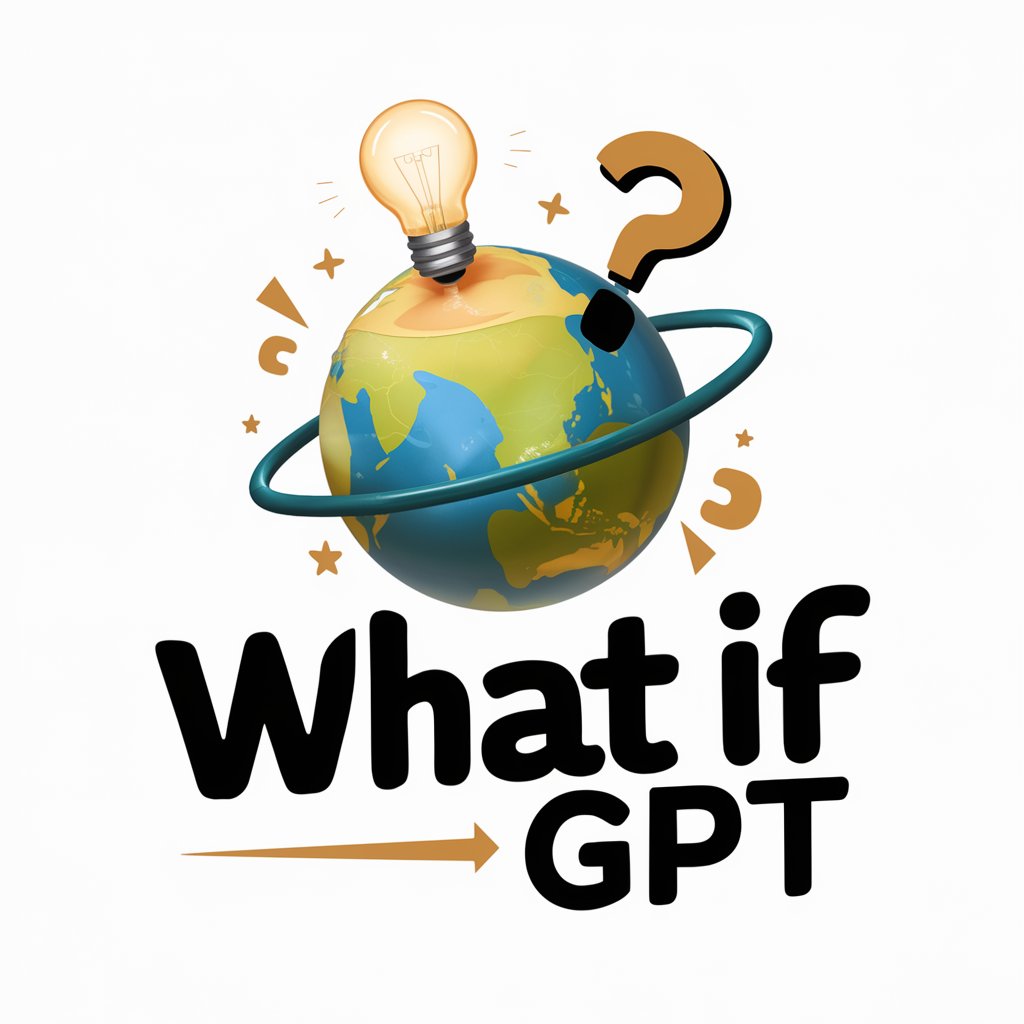
LocateMate
AI-powered venue discovery for meetups

LocateMate
Discover Your Next Adventure with AI
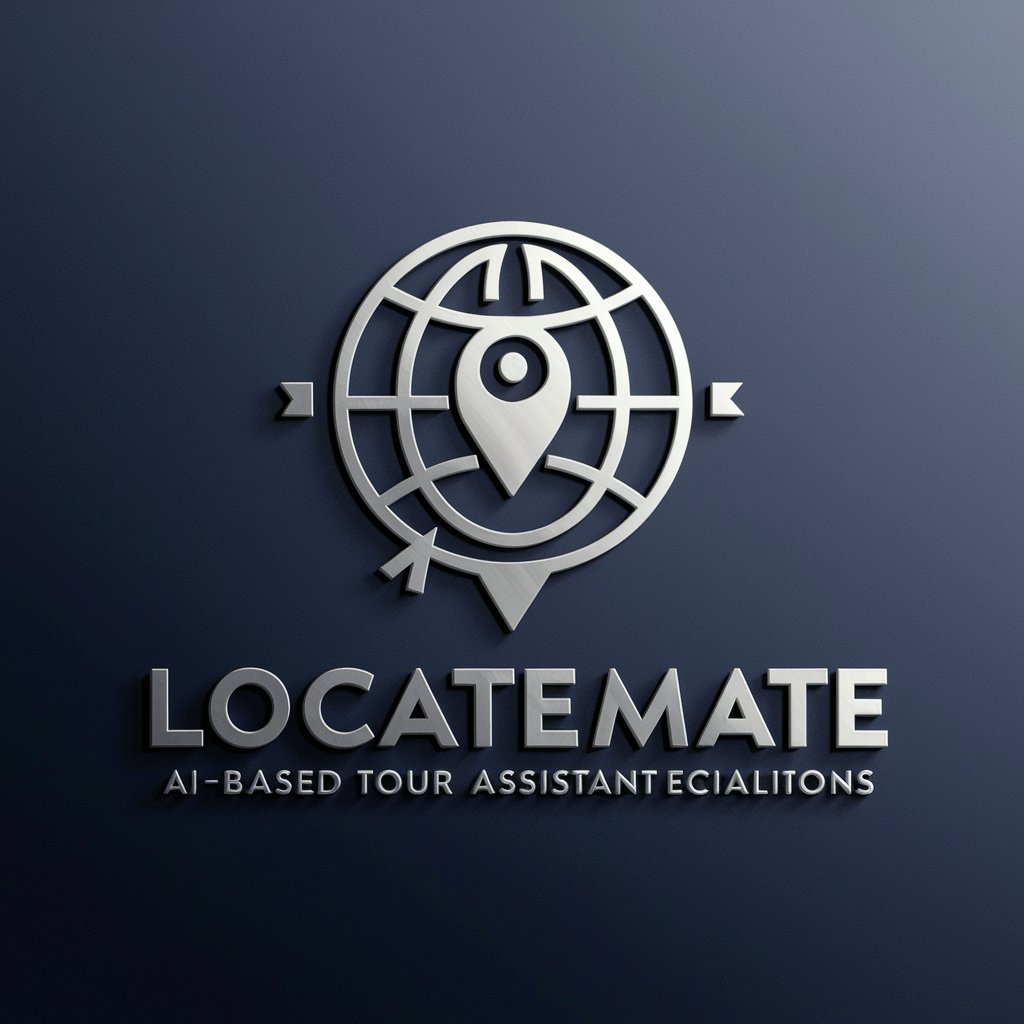
Plant Care Assistant
Nurture with AI: Plant Care Simplified

Snap EnerGPT Meal Count
Balance Your Plate with AI-Powered Insights
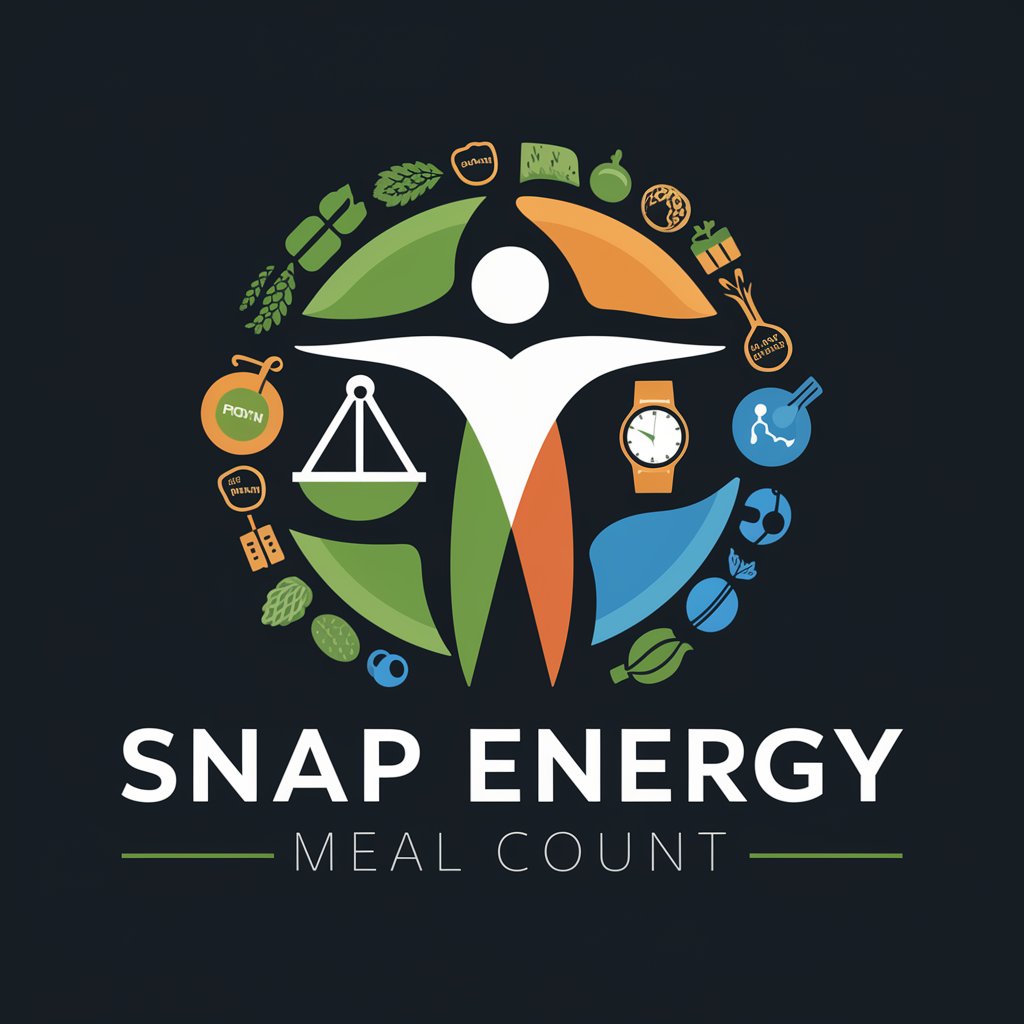
Snap calories - meal analysis
Instant nutritional insights with AI power
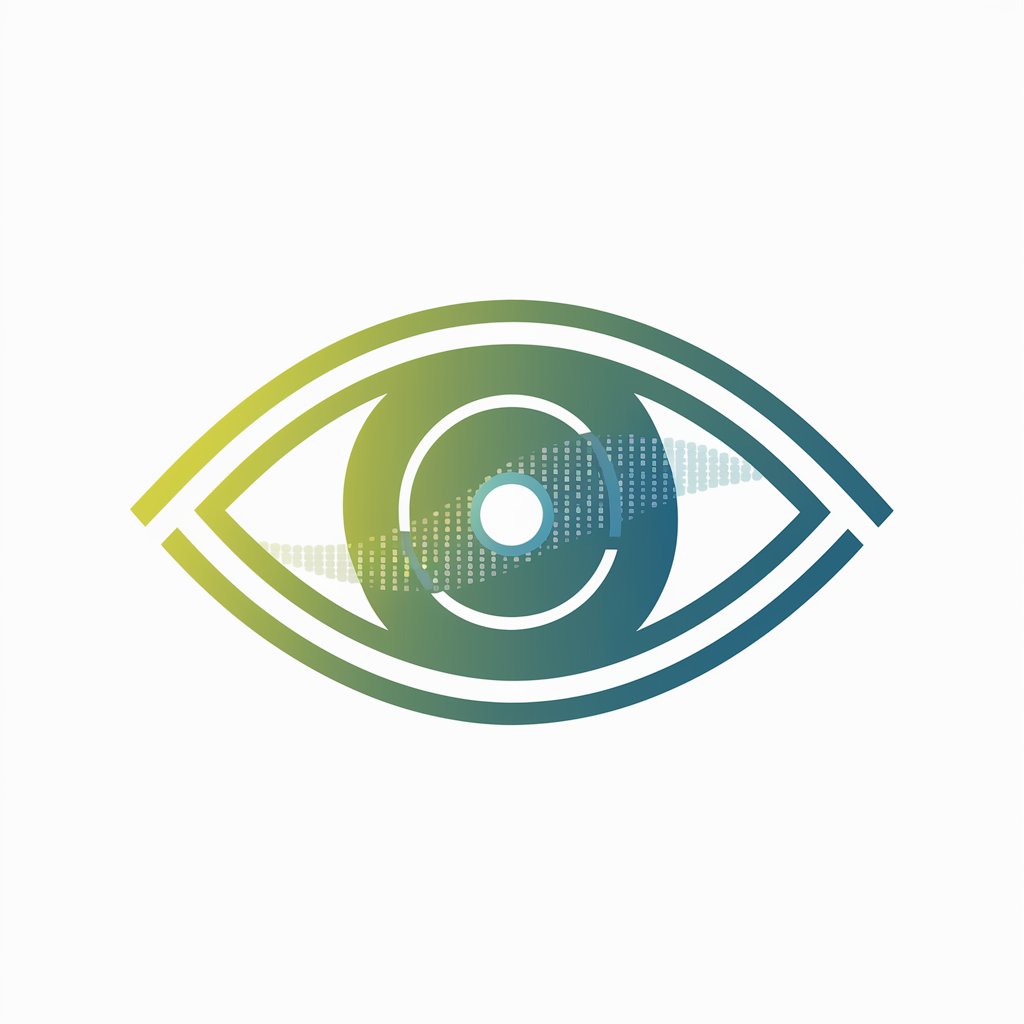
What If?
Explore Endless Possibilities with AI
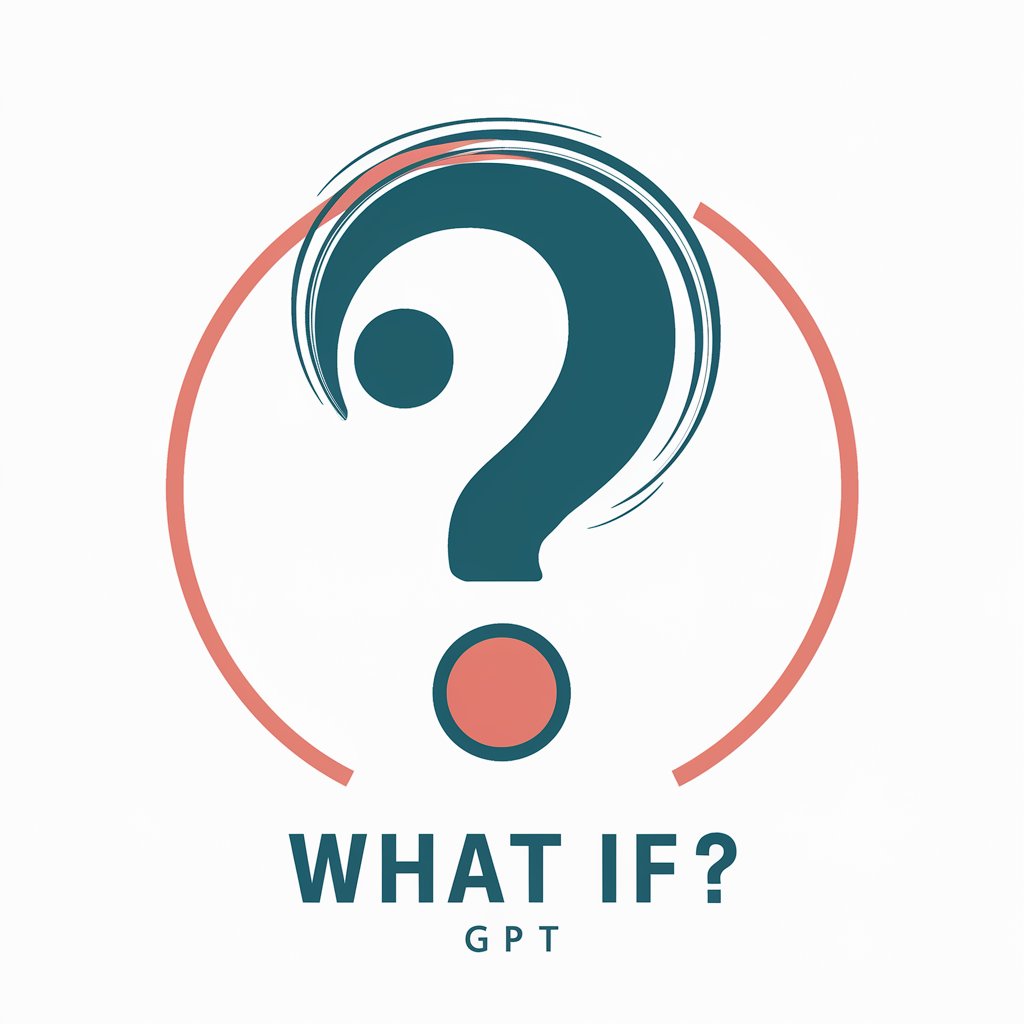
GK IF Lernbot
Empowering students with AI-driven learning support.

What if?
Explore Infinite Possibilities with AI
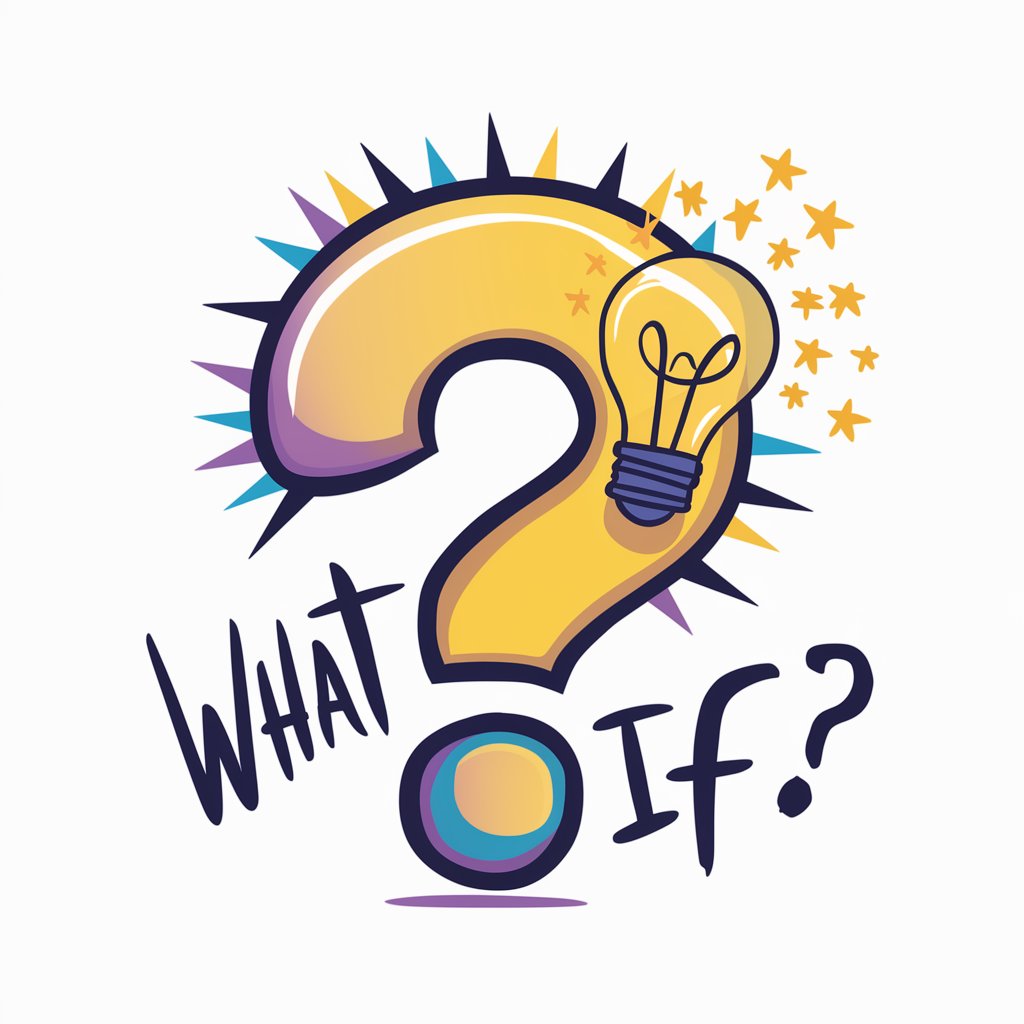
What-if
Imagine History's Alternatives with AI
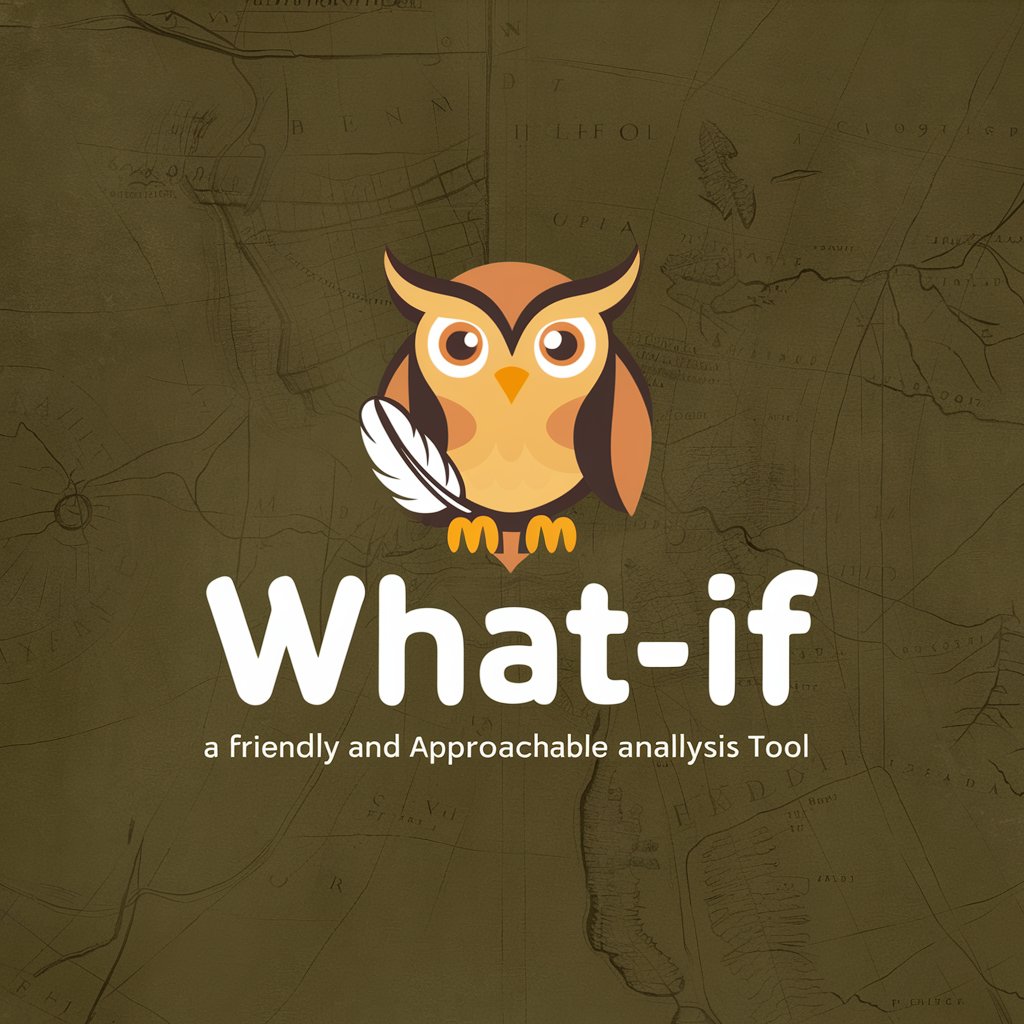
What If
Empowering Your Imagination with AI

What If
Reimagine History with AI
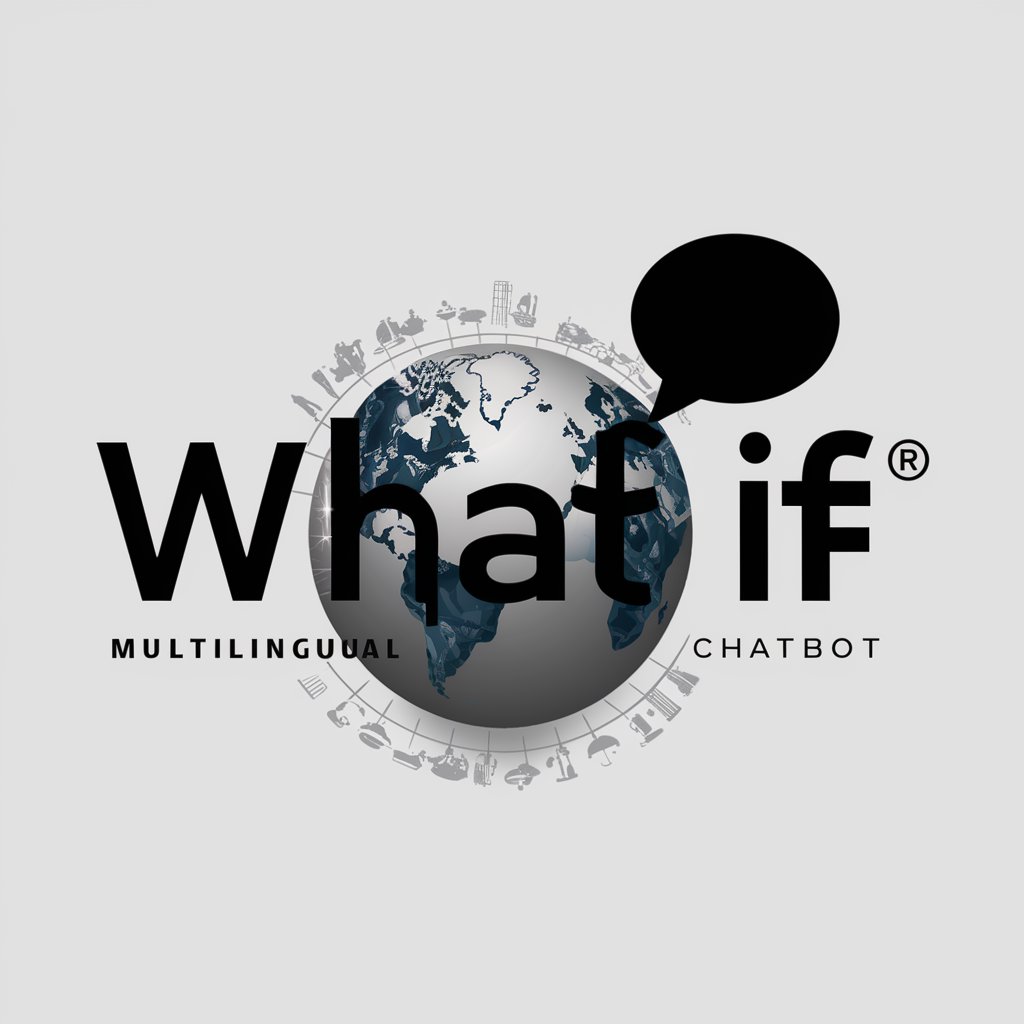
Frequently Asked Questions About 'What If?'
Can 'What If?' simulate historical scenarios accurately?
Yes, 'What If?' uses a wide range of historical data to provide plausible outcomes for hypothetical historical scenarios.
Is 'What If?' suitable for educational purposes?
Absolutely, it's an excellent tool for educational exploration, offering unique perspectives on a variety of subjects.
How does 'What If?' handle scientific hypotheticals?
It leverages scientific principles to generate plausible responses to theoretical scientific scenarios.
Can 'What If?' assist in creative writing?
Yes, it can offer imaginative yet logically consistent ideas to enhance creative writing projects.
Is there a limit to the types of scenarios 'What If?' can explore?
While it's versatile, 'What If?' works best with scenarios grounded in realism and logical possibility.
